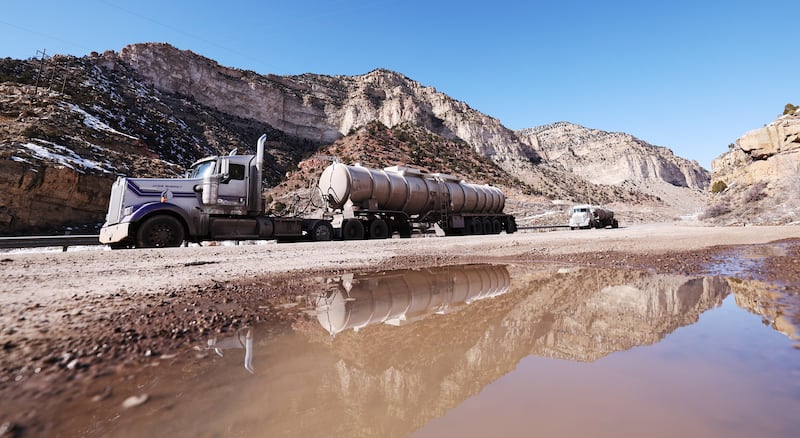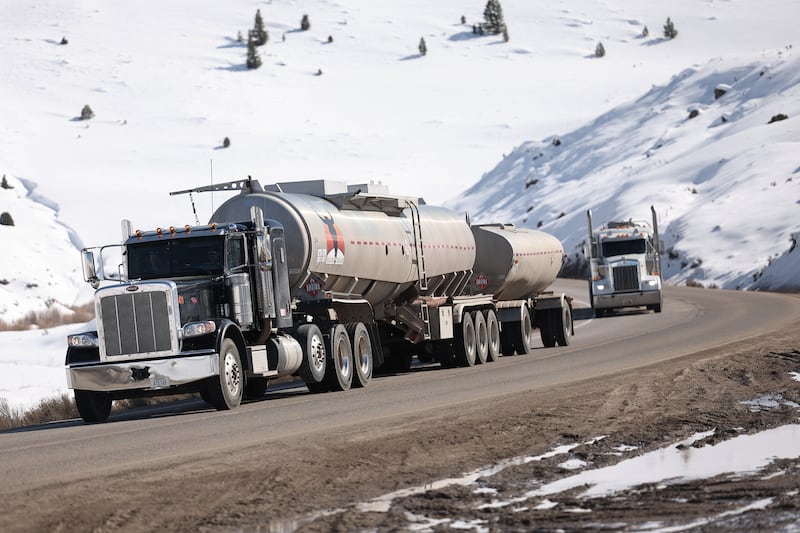A planned 88-mile railroad line that would traverse eastern Utah and connect with the National Rail Network is once again sparking controversy with opponents who seek to derail bonding authority for the freight line.
Critics that include some members of Colorado’s congressional delegation and more than 150 climate or conservation groups are urging that any bonding authority for the Seven County Infrastructure Coalition should be rejected in its pursuit of the Uinta Basin Railway Project.
In a letter to U.S. Transportation Secretary Pete Buttigieg, opponents said the project exposes communities and the Colorado River to undue risks, and bonding authority should not be granted.
“This would be a massive federal tax break for a dangerous, polluting railway project that clearly doesn’t serve the public’s interest. The Biden administration should firmly reject it,” said Deeda Seed, senior campaigner at the Center for Biological Diversity. “President (Joe) Biden has pledged to reduce carbon emissions and fight the climate emergency. This is a prime opportunity for him to do so.”
Opponents are trying to preempt a request that has not yet happened.
Keith Heaton, executive director of the Seven County Infrastructure Coalition — a public interlocal entity — said the coalition has not yet submitted a bonding authority request to Buttigieg but endorsed the concept in a recent meeting and after a public hearing.
“We are in the process of doing that,” he said. “Because we are a government entity we can apply and then those bonds would be tax exempt, which is very appealing to investors in the private market.”
He added that the project has already received approval of the Surface Transportation Board, an independent federal agency tasked with the economic regulation of surface transportation.
In another letter with the logo of Colorado Senate Democrats, signatories compared the risk of the project to the East Palestine, Ohio, derailment in February that forced the evacuation of the community and led to burning of toxic chemicals. The letter adds that the transport of “heated” waxy crude poses public health and environmental threats to Colorado mountain communities.

But Heaton said the allegation the waxy crude will be “heated” during its transport is false.
“We have no intention of using heated rail cars,” he said, adding that some people are misinformed about the crude being a heated and liquid hazardous material.
“The likelihood of it spilling in a derailment is very minimal because it is a solid ... it would just sit on the ground like a candlestick. It is like if you dropped a box of birthday candles in the kitchen sink, you just pick them up.”
He said the project is understandably attracting a lot of attention because of its size.
“It’s been decades since a freight rail of this magnitude has been built in the United States,” Heaton said. “So it is very challenging because anytime you have significant growth or development there are people who oppose it for various reasons and I understand that.”
He added the project has strong local support from residents, Utah’s congressional delegation and other elected officials in the state with the railway’s ability to expand commerce in the basin.
“It is a more economical, environmentally friendly and safer way of transporting anything,” he said, pointing to the benefits of a railway system. “There’s always been a large economic hurdle for the Uinta Basin that is constrained by high mountain passes that are only accessible by two-lane roads no matter which direction you go.”
The railway project has hit hurdles before, with opponents asserting the Seven County Infrastructure Coalition improperly used community impact monies to further the project. A judge tossed the lawsuit alleging the illegality of the coalition’s receipt of nearly $28 million.
A state legislative audit in 2020 did conclude that while the expenditure of community impact money for the railway was not improper, it raised numerous questions over how mineral extraction fees could be aggravating the impacts of industry activity rather than alleviating them as the money is supposed to.
Heaton said it is unclear how many tanker trucks would be taken off highways — the coalition can’t dictate to an industry how to move its products — but he said it would increase production capacity by as much as two-fold. Critics say it would potentially quadruple oil production in the basin at a time when the country should be weaning itself off fossil fuel development amid climate change.


